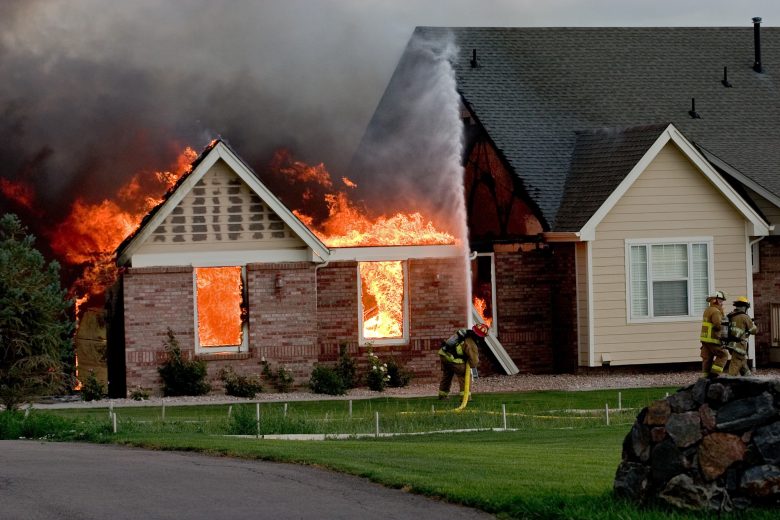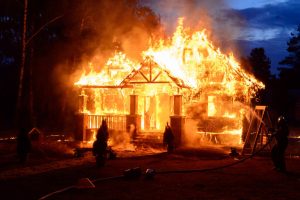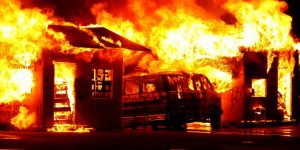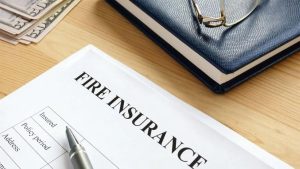Damage from fire is one of the most catastrophic risks that can cause loss of property and to recuperate from it, or at least reduce the overall financial impact, it is advisable to have an understanding of fire insurance.
In this article, we will cover different policies under fire insurance, its coverage limits and deductibles, as well as add-on covers if any.
Coverage
A structure and its contents can be insured against the fire hazard for a pre-agreed value which would mitigate the financial risk and security post a devastating fire by covering costs to repair or reconstruct the premises, including the belongings inside.
Residents of condominiums or homes located in wildfire prone areas, or are older with expensive customization are likely to add fire coverage (known as dwelling fire insurance) as part of their homeowners or condo insurance policies. Alternatively, fire coverage can be bought standalone, which is referred to as dwelling fire insurance.
Insurance companies also cover businesses from fire damage and any legal claims that arise because of the incident. Such insurance allows faster restoration of business operations after an incident has taken place and in the absence of legal charges placed against business owners for liability protection.
Both the owners and agents must note the fundamental parts of a fire policy. These parts define the policy’s effectiveness, limitations, and scope, with coverage being the most important. A comprehensive fire policy should cover not only structures but also tools kept in garages or sheds. In addition to loss coverage, a policy should also provide for an expense reimbursement coverage, which compensates owners and agents for hotel and food expenses due to a fire rendering a home or business unusable.
Exclusions
A fire insurance policy tends to have a wider variety of risks that a policy covers; however, certain limitations come with it. Some of the most common limitations are:
Though it may sound obvious, it is perhaps the most important to restate that property owners need to know what a policy covers before signing. Following such protocol will prevent surprises down the line while guaranteeing the policy comprehensively addresses every risk that exists in the property.
Standard fire policies tend to exclude damages arising from certain types of spontaneous combustion, such as oily rags, certain agricultural products, and chemicals. Moreover, other natural phenomena like earthquakes or volcanic eruptions are also not covered.
Most standard policies tend to exclude damage resulting from the relocation of equipment, machinery, and materials. This does not pose a significant challenge for most properties, however, they do remember that additional coverage would be required if the insured opted to have more coverage against such losses.
Owners of properties in wildfire prone regions must understand the nuances of fire insurance to counsel clients on whether they deem it appropriate. This knowledge also gives them the option of ‘dwelling fire coverage’ and others.
Additional Living Expenses
If your home becomes unlivable because of fire damage, your insurance can help by covering the costs associated with living somewhere else while repairs or a replacement is being completed. Also known as loss of use coverage, this provision helps homeowners pay for things such as hotel stays, extra transportation costs, and restaurant meals while their home is repaired or rebuilt, allowing the insured to maintain an acceptable standard of living during what can be a very trying period of time.
It is prudent to consult with your agent, insurance company or adjuster of choice regarding additional living expense coverage prior to purchasing home insurance policies. In many cases, additional living expense policies are included in the coverage limits applicable to the personal property and the dwelling insurance policies.
In order to qualify for additional living expenses (ALE) reimbursement, receipts for all expenditures like hotel stays, gas, and meals that surpass what your insurance provider will pay have to be included. Your insurance provider has these limits so it’s essential to keep good accounts. For larger or intricate claims, it may prove to be advantageous to employ the services of a public adjuster who bears all the burden of negotiations in an effort to enhance the claims settlement offers and ensure that there is a full recovery following a fire is as smooth as possible.
Deductibles
The aftermath of fire damage to your residential or commercial property can set off a financially painful chain reaction. Fire insurance offers coverage that is vital for rebuilding efforts, ensuring business continuity, and mitigating the extent of the disaster to a manageable setback. Having working knowledge of fire insurance concepts inclusive of insurable interest, indemnity, proximate cause, subrogation, and contribution makes it easier to make decisions regarding coverage options.
As always, most homeowners’ policies have both a fixed and percentage deductibles, meaning that when submitting an insurance claim, you have to pay a particular amount first. Generally, the premiums are lower with higher deductibles, but it is important to keep in mind your budget as this could lead to significant out-of-pocket expenses should a claim arise.
Most homeowner policies contain “additional living expense” provisions which reimburse you for the extra expenses incurred after a fire such as dining out or hotel accommodations while your home is under repairs. For vacation homes or other high-risk properties that have suffered extensive fire damage, a stand-alone fire policy may be the most appropriate. These types of policies generally have deductibles with built-in protections and other optional coverages. Such protections include meeting new building requirements as a result of smoke or fire damage, protection against loss due to storms and surges, damages from earthquakes, contents coverage for fires and smoke, and proscriptions against flooding and more.




